Personen
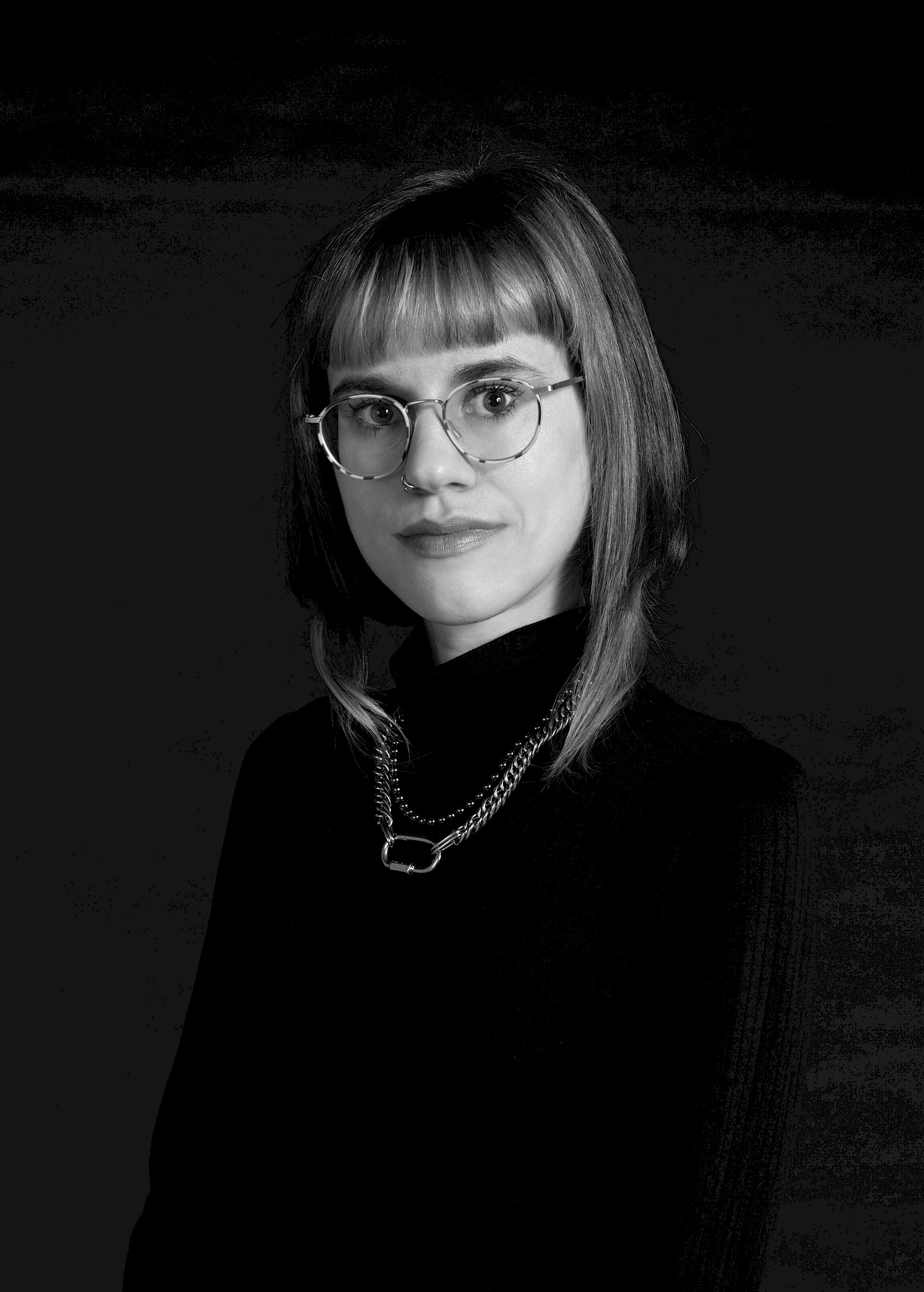
Anthea Oestreicher
PhD Kandidatin
Plant Drifters (WT)
Supervisor: Dr. Roman Kirschner, ZHdK
Prospective Supervisor: Prof. Dr. Karin Harrasser, University of Art and Design Linz.
PhD Advisors : Prof. Dr. von Zinnenburg Carroll (TBA21), Prof. em. Clemens Posten (KIT Karlsruhe)
Anthea Oestreicher (PhD, Transdisciplinary Artistic PhD Program, Interaction Design, ZHdK) is an interdisciplinary designer and artistic researcher. Holding a diploma in visual communication (h_da Darmstadt, 2017) and an M.A. in Design & Future Making
(HS Pforzheim, 2022), she understands design as exploration and physical storytelling to focus on exploring the entanglements between systems and living beings. By bridging the realms of design, cultural sciences, and biology, she underscores the significance of connections between humans and more-than-humans, organic and inorganic entities. Her projects and research serve as a testament to the implications of these entangled interactions, fostering critical thinking through sympoeitic correspondences. Since the summer of 2023, Anthea has been a fellow at KIT Karlsruhe, Institute of Bioengineering, where she conducts research on art and science collaborations focusing on microalgae. Her work at the intersection of art and bioengineering exemplifies her commitment to advancing our understanding of the symbiotic relationships that shape our world.
The practice-based research project «Mobilis in mobili – Drifting with/in planktonic seas» (WT) (supervised by Dr. Kirschner, ZHdK and Prof. Dr. Harrasser, University of the Arts Linz) delves into the intricate realm of phytoplanktonic entities, unraveling their significance as keystone species within planetary cycles. Focused on Phytoplankton (greek φυτόν [phytó], ‚plant‘; πλαγκτός [planktos],‚drifter‘) as a vital part of an intricately balanced system, the project is indicating effects of climate change and ocean acidification to foster a connected ” plant-thinking“ (Marder, 2013). Through amplifying the importance of these species and its connection to global ecological networks, Oestreicher’s practice of spatial installations including converted oceanographic devices (e.g. drifters as tools, diving regulators as exchange interfaces, „Mesokosmen“ as observators) makes invisible processes perceptible. By attuning and witnessing processes in wet labs, which include both open water environments and traditional biology laboratories, the project seeks to comprehend how assemblages around breathing and becoming-with can point out the effects of oceanic and global changes. This interdisciplinary initiative prompts us to reconsider the intersection of scientific and artistic methods and to develop practices of “care” (de la Bellacasa 2017) —a mindset crucial for navigating precarious times. With immersive, multi-sensorial translations of marine biologists’ tools, the role of the human is transformed from thinking about to thinking and designing with these plant drifters in mobility.
Selected Publications
Oestreicher, A. and Reitschuster, L. (2022); Lynn Margulis: Gelebte Vielfalt zum Ausmalen. Wie durch die Vermittlung mikrobiologischen Wissens ein Perspektivwechsel auf die binäre Ordnung der Geschlechter eröffnet wird., FKW//Zeitschrift für Geschlechterforschung und visuelle Kultur (In press).
Oestreicher, A. (2022) »(B)OTHERING - Algen als Inspiration für Kunst und Design«, 13. Bundesalgenstammtisch, DECHEMA Frankfurt, Poster.
Oestreicher, A. (2022) »(B)OTHERING - substrate of coexistence«, SDN Winter Research Summit: Counterparts: Exploring Design Beyond the Human, Panel Discussion.
Selected Awards
2022 »German Design Award - Newcomer« (Nomination) 2021 LBBW Grant for Production and Publication of (B)OTHERING 2015 »Förderpreis für junge Buchgestaltung« (Shortlist) Title: Plant Drifters. (WT)
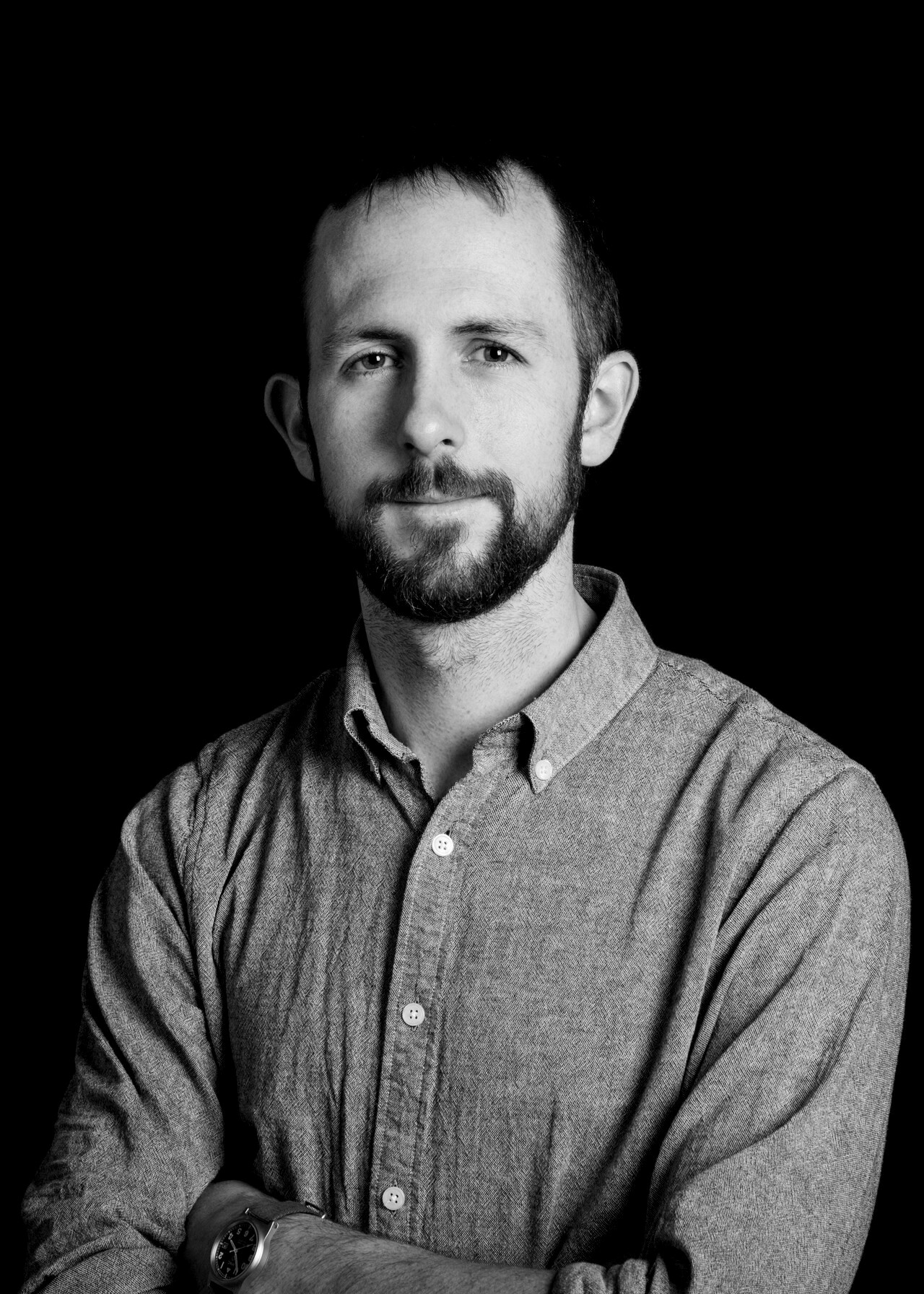
Luke Franzke
PhD Kandidat
Oral Digital
Supervisors: Prof. Dr. Karmen Franinović, ZHdK & Prof. Dr. Martin Kaltenbrunner, University of Art and Design Linz.
Luke Franzke is a research associate at Interaction Design at the ZHdK, where he heads the Physical Computing Lab. His teaching spans technical subjects such as physical computing and programming to conceptual approaches in material practices and embodiment in design. His research investigates the role of emerging material technology in Interaction Design, Human-Computer Interaction and wearable technologies. Luke completed a BA in Multimedia in 2006 and MA in Interaction Design in 2013 and is currently pursuing his PhD.
We experience digital systems predominantly through modalities that exploit our innate strengths in hand-dexterity and vision. Yet, we are also immensely gifted with sensory-motor ability in the tongue and mouth, allowing us the ability to eat, breathe, synthesise language and sense complex textures, tastes and flavours. These modalities have been completely neglected in the design of human-computer interfaces.
This PhD thesis begins with basic research in currently unknown neurophysiological measures related to tactile acuity in the mouth, variations in dexterity and the diverse impacts of sensory integration. The empirical evidence gathered supports the development of an expanded framework for multisensory design and specific guidelines for the design of Intraoral Computer Interfaces. This framework lays the ground for prototypes allowing for radical sensory experiences, cognitive and physical augmentation and novel modes of interaction.
Selected Publications & Awards
K. Franinović and L. Franzke. 2019. Shape Changing Surfaces and Structures: Design Tools and Methods for Electroactive Polymers. In Proceedings of the 2019 CHI Conference on Human Factors in Computing Systems (CHI '19). (Honorable Mention Award)
K. Franinović, L. Franzke, F. Wille, and A, Villa Torres. 2019. Interacting with Electroactive Polymers in Responsive Environments. In Proceedings of the Thirteenth International Conference on Tangible, Embedded, and Embodied Interaction (TEI '19).
L. Franzke, D. Rossi, K. Franinović “Fluid Morphologies: Hydroactive Polymers for Responsive Architecture ” in the proceedings of the Association for Computer Aided Design in Architecture 2016.
K. Franinović, L. Franzke “Luminous Matter: Electroluminescent Paper as an Active Material” in DeSForM - Design & Semantics of Form & Movement, 2015.
K. Franinović, L. Franzke and C. Winkler, “Enactive Environments: Thinking and Creating with Active Materials “ in Contemporary Design Education & Research, Ed. Li Degeng and Luo Yi, Guangxi Normal University Press, 2014.
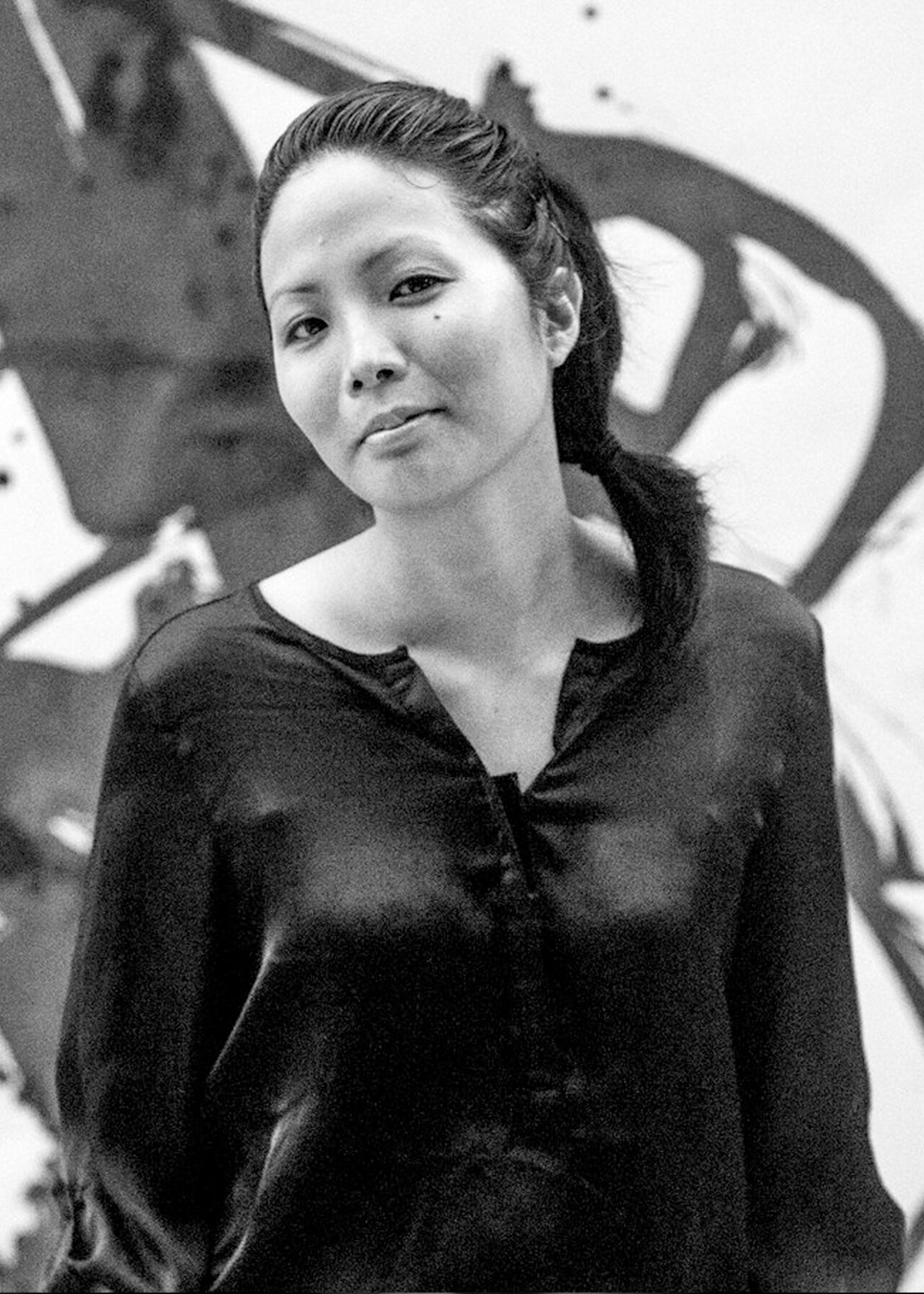
Nomi Sasaki Otani
PhD Kandidatin
DADA-TATA
Interactive art for children focused on personal data processing and children's rights in the digital realm
Supervisor: Prof.Dr. Manuela Naveau, Linz and Prof. Dr. Karmen Franinović, ZHdK
Nomi Sasaki Otani is a Peruvian Japanese visual artist devoted to Chinese black ink tradition and animation. Her work explores scale and dimension, the material nature of water, the behavior of light, and how these elements can create new landscapes and atmospheres for multidisciplinary performances. Her recent work focuses on micro realities, peep media and data processing. She holds a MA from the University of Art and Design Linz and a BA in Communication Sciences from Lima University.
DADA-TATA is an artistic/scientific research project that reflects on children's rights in the digital environment. It focuses mainly on the right to privacy and to freedom of thought threatened by data processing and artificial intelligence systems. The DADA-TATA project approaches this issue from an artistic perspective to create interactive artworks and cultural actions designed especially for children. In this regard, DADA-TATA explores the potential of interactive art to enhance children's data literacy and disseminate and better understand children's rights in the digital world.
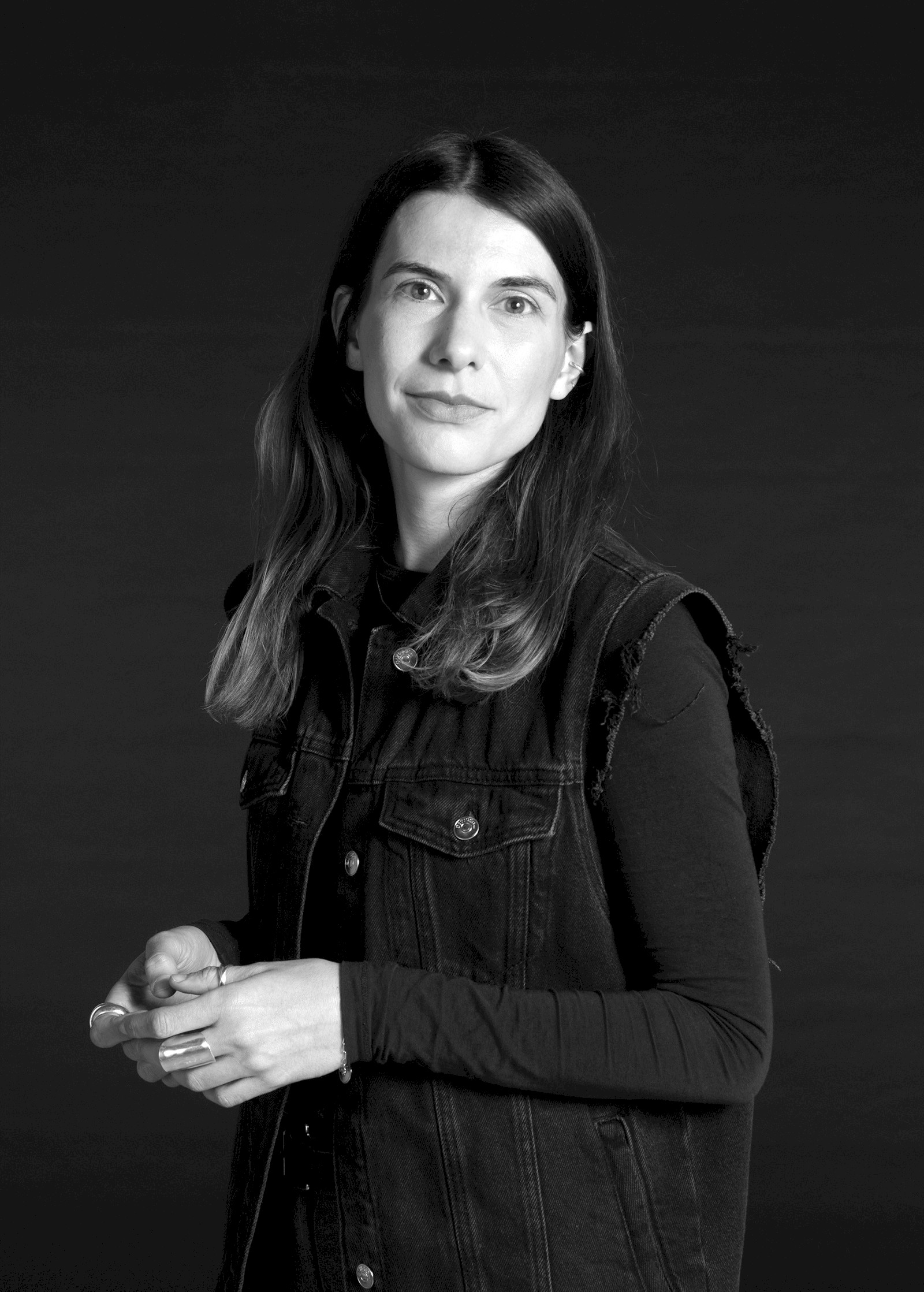
Rasa Weber
PhD Kandidatin
Symbiocean (WT) A sympoietic design approach to the Ocean.
Supervisors: Prof. Dr. Karmen Franinović, ZHdK and Prof. Dr. Karin Harrasser, Cultural Studies, University of Art and Design Linz.
Associated with: "Matters of Activity", Cluster of Excellence, Humboldt University Berlin.
Collaborators: Jordan Lab, Max-Planck Institute of Animal Behavior.
The practice-based research project «Symbiocean» (WT) explores the concept of growing material systems as marine Zoöps (more-than-human habitats, Zoé= life, Greek) for architecture and design in multispecies marine environments via scuba-diving.
At the intersection of marine biology, anthropology and design, the research explores practice-based and theoretical research on sympoietic design processes with human, animal and microbial actors with/in the ocean. Inspired by the process of oceanic mineral accretion (developed in the 1970s by Wolf Hilbertz and Thomas Goreau as «Biorock») the project researches on developing a new approach to critical ecological practices within the environment of the seascape (limestone, marine neophytes, biofouling and bioreceptivity). By methods of underwater attunement, co-speculation and marine fieldwork, the project observes Interspecies Architecture as a new model for fostering the cultivation of designing materials as a sensitive, multispecies habitats.
Rasa Weber is a designer, research (and scuba-diver) with a focus on bio-based materials and interdisciplinary research. Her design concepts are driven by a strong narrative approach and critical ecological thinking. She regularly teaches at international universities and is currently a research associate at ZHdK and pre-doctoral researcher at "Matters of Activity", Cluster of Excellence. She works across the disciplines of material research, architecture, product design, and film. In her practice-based PhD, she investigates new material processes of built habitats within more-than-human marine environments, as a way to both practice and question architecture today.
She is one of the founders of 'They Feed Off Buildings', a design and architecture collective from Berlin, in collaboration with Luisa Rubisch. As head of design & founder of Studio Blond & Bieber she works on bio-based material- and color concept together with textile designer Essi Glomb.
She brings sustainable material development from the closed system of the laboratory to the open system of the ocean via interdisciplinary field methods (collaboration with Max-Planck Institute of Animal Behavior). By researching applications and production processes of post-fossil material production, from strategies of mining to future methods of growing matter, her work challenges the concept of active matter on an ecological and architectural level.
Selected Publications
Weber, R. , Wegner, A. (2022) Getting Attuned to the Ocean. Immersive field methods between marine biology and design research. SDN Winter Research Summit: Counterparts: Exploring Design Beyond the Human.
Weber, R. Designing (in/with) the Ocean. (2022) Sustainability Science Dialogues. Zurich University of the Arts, Switzerland.
Weber, R. Symbio Design - Toward sympoietic materials research in the ocean. (2022) Design X Nachhaltigkeit - DGTF Jahrestagung, Muthesius University of Fine Arts and Design, Kiel.
Weber, R. Growing Matter. (2021) Symposium: Material Negotiations: Practices of Biodesign, Collaborations, Making With & Transience. Matters of Activity. Berlin. Virtual.
Rubisch, L., Weber, R. Transformative Matter - Materials Research for our Sustainable Future? (2020) Design TO Opening Lecture. Harbourfront Center Toronto, Canada.
Selected Awards
2020 Deutscher Nachhaltigkeitspreis (Nomination). Stiftung Deutscher Nachhaltigkeitspreis.
2019 AD Design Award - Best Concept (Nomination). Design Award. »Urban Terrazzo.« AD Magazin
2019 German Design Award - Newcomer (Nomination). Design Award. »Urban Terrazzo.« Rat für Formgebung.
2018 Bundespreis Ecodesign. Design Award. »Urban Terrazzo.« Deutsches Bundesumweltministerium / Umweltbundesamt.
2016 German Design Award - Newcomer (Nomination). Design Award. »Algaemy.« Rat für Formgebung.
2014 Bundespreis Ecodesign. Design Award. »Algaemy.« Deutsches Bundesumweltministerium / Umweltbundesamt.
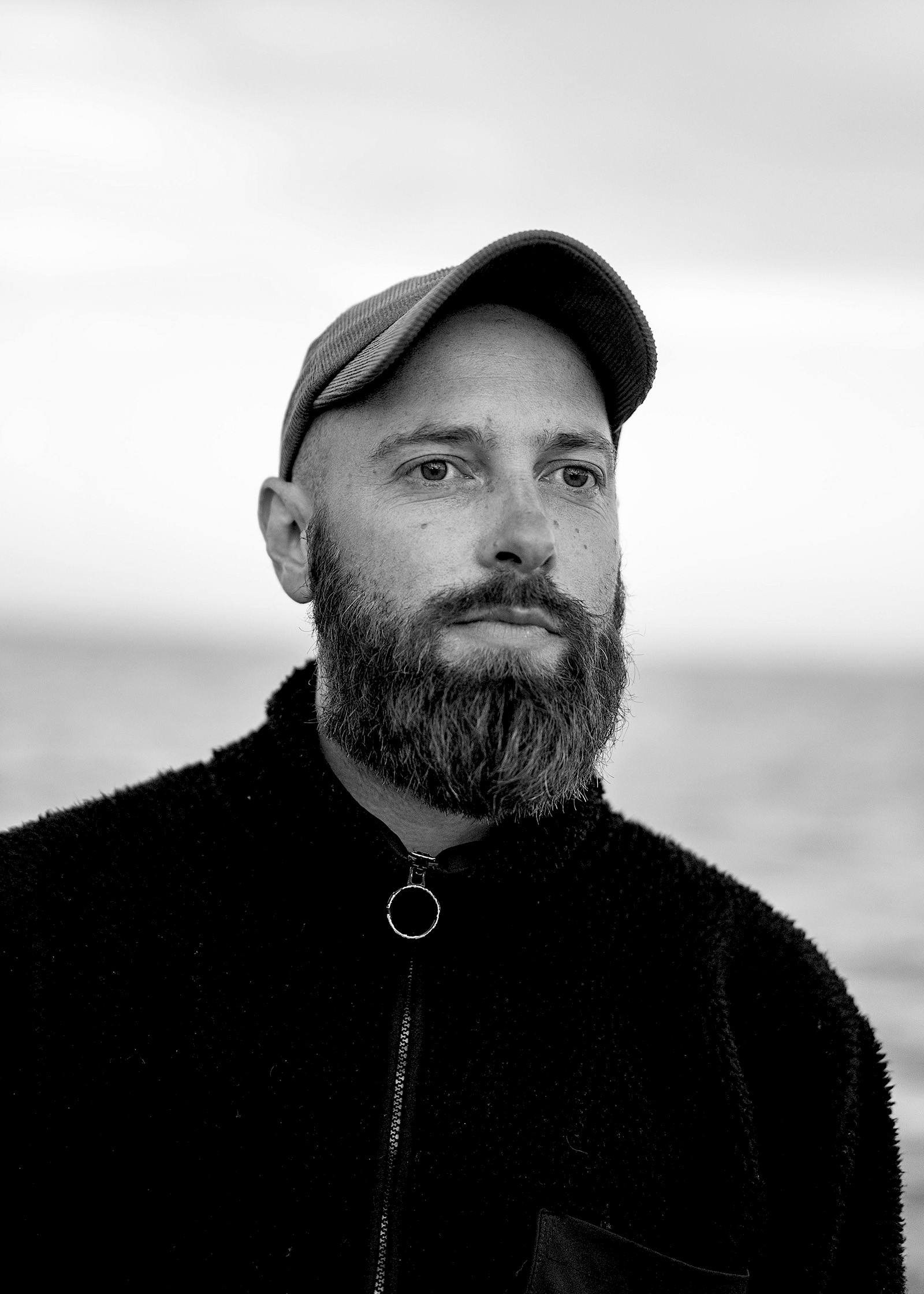
Antoine Bertin
PreDoc
Antoine Bertin is an artist working at the intersection of science and sensory immersion, field recording and sound storytelling, data and music composition. His creations take the form of listening experiences, immersive moments and audio meditations exploring and sculpting relationships with the living world. His work has been presented at Tate Britain, Palais de Tokyo, Serpentine Gallery, KIKK festival, CCCB Barcelona, Dutch Design Week, Dakar Biennale, 104 Paris, Centre Wallonie Bruxelles, with Google Arts & Culture and the Centre Pompidou. Antoine has received the Act Award from STRP festival in 2020 for his work Species Counterpoint, and the Sferik Art in Nature award in 2023. He produces a quarterly show called “Edge of the Forest” on NTS radio, weaving together field recordings, data sonifications and science inspired contemplations.
Antoine’s research proposal, entitled Aquatic Conversations, explores the significance of digital acoustics in augmenting the sense of hearing, sculpting relations between humans and aquatic beings, and extending understanding of marine ecosystems. At the intersection of telemetry and machine learning, artificial listening facilitates the search for architectures in the communications of aquatic species. As humans seek to decipher the vocalisations of other beings, and engage in conversations with forms of intelligences different than their own, the research delves into the opportunities and uncertainties of developing new interspecies relations through sound in the ocean. Alongside examining the historical context of human-marine interactions, Aquatic Conversations proposes methods for listening-driven underwater field research and digital acoustic based interaction design. Ultimately, the project aims to design interfaces that explores possible conversations between humans and the marine ecosystems, fostering sustainable relationships and ecological commitment.
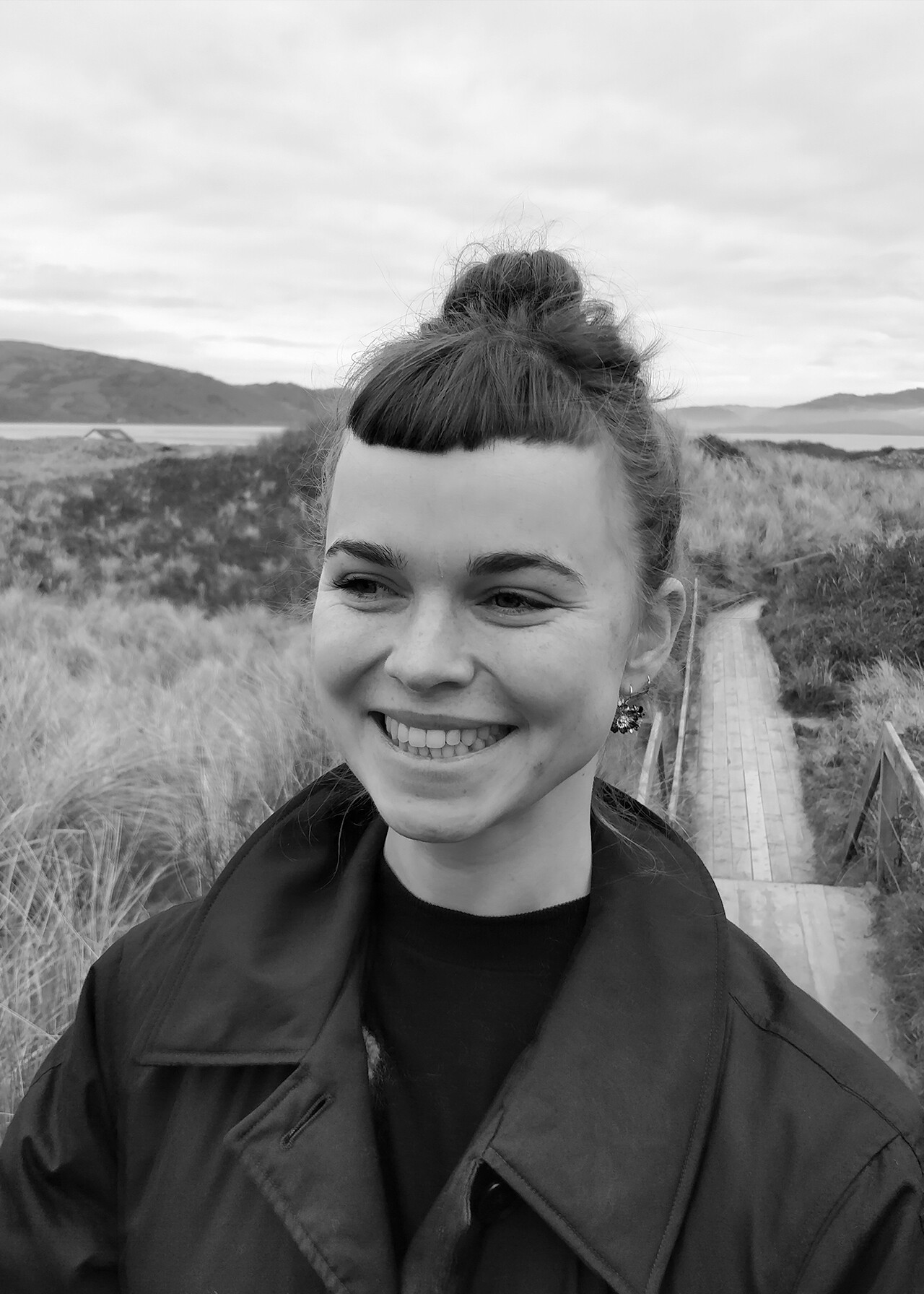
Emily Groves
PreDoc
Culture cultures
Bridging creative and fermentation practices in Romandie (WT)
Supervisors: Prof. Dr. Joelle Bitton, ZhdK and Prof. Dr. Karmen Franinović, ZHdK
Emily Groves is a designer and researcher interested in the intersection of food, culture and interaction. With a background in anthropology, biology and experience design, she currently works at the EPFL+ECAL Lab in Lausanne, Switzerland as an interaction designer and coordinator of their Masters of Advanced Studies in Design Research. She regularly teaches critical design research methods to masters students in the UK and in Switzerland.
Emily is also the co-founder of the design studio for conviviality, Cocktail Sandwich, which has been running since 2018 creating projects linking food and design. In 2021, Cocktail Sandwich developed, designed and built Deli Social, an active café and culinary residency space in Lausanne. With a focus on local, seasonal and creative cuisine, she is involved in operations, menu creation and collaborations. Her role as president and mentor for residents on the space’s Mise en Place culinary residency programme, furthers her engagement with experimental and critical thought around the future of food.
As designers increasingly seek ways to decenter people from the design process, certain food practices involving microorganisms already embody the interdependencies humans have with the entities around them. The production of gruyère cheese, for instance, involves cows, grass, soil, lactobacillus helveticus, people, the weather and many more entangled actors. This example also highlights how such practices can span multiple spatio-temporal scales, from microbe to landscape, and second-long actions to year-long maturations. So what opportunities lie in bridging fermentation and design practice? Could this intersection promote practices that attune us to entangled environments?
Firstly, pursuing more-than-human approaches from anthropology and design, I will look to understand existing fermentation practices in Suisse Romand, from industrial to domestic production and consumption. Then, working in the context of Deli Social, a creative culinary centre in Lausanne, I will mediate this situated knowledge by proposing and curating a series of public-facing events, artefacts and outcomes. Based in the culture and landscape of Romandie, these will combine creative design practice with the enacted knowledge of food practices. In doing so, this thesis aims to foster experiences and generate knowledge that can contribute to new theoretical frameworks for dealing with our increasingly entangled world.
Selected Publications & Activities
Junior Research in Design Program Grant - From food practices to design research methods: Advancement of a PhD proposal for developing creative interaction design methods from food cultures with a beyond human focus (2022)
Jury Member for the architectural competition for the renovation and transformation of a prominent public building in Lausanne (2022-2023)
Henchoz, N., Groves, E., Sonderegger, A., & Ribes, D. Food Talks: Visual and interaction principles for representing environmental and nutritional food information in augmented reality. ISMAR 2019 Poster Papers. ISMAR 2019, Beijing. (2019)
Fass, J., & Groves, E. (2019). Global HCI Curricula: The Case for Creativity. EduCHI 2019. EduCHI 2019, Glasgow. (2019)
Distil - augmented gin tasting. Featured artwork at Food Culture Days Festival (2018).
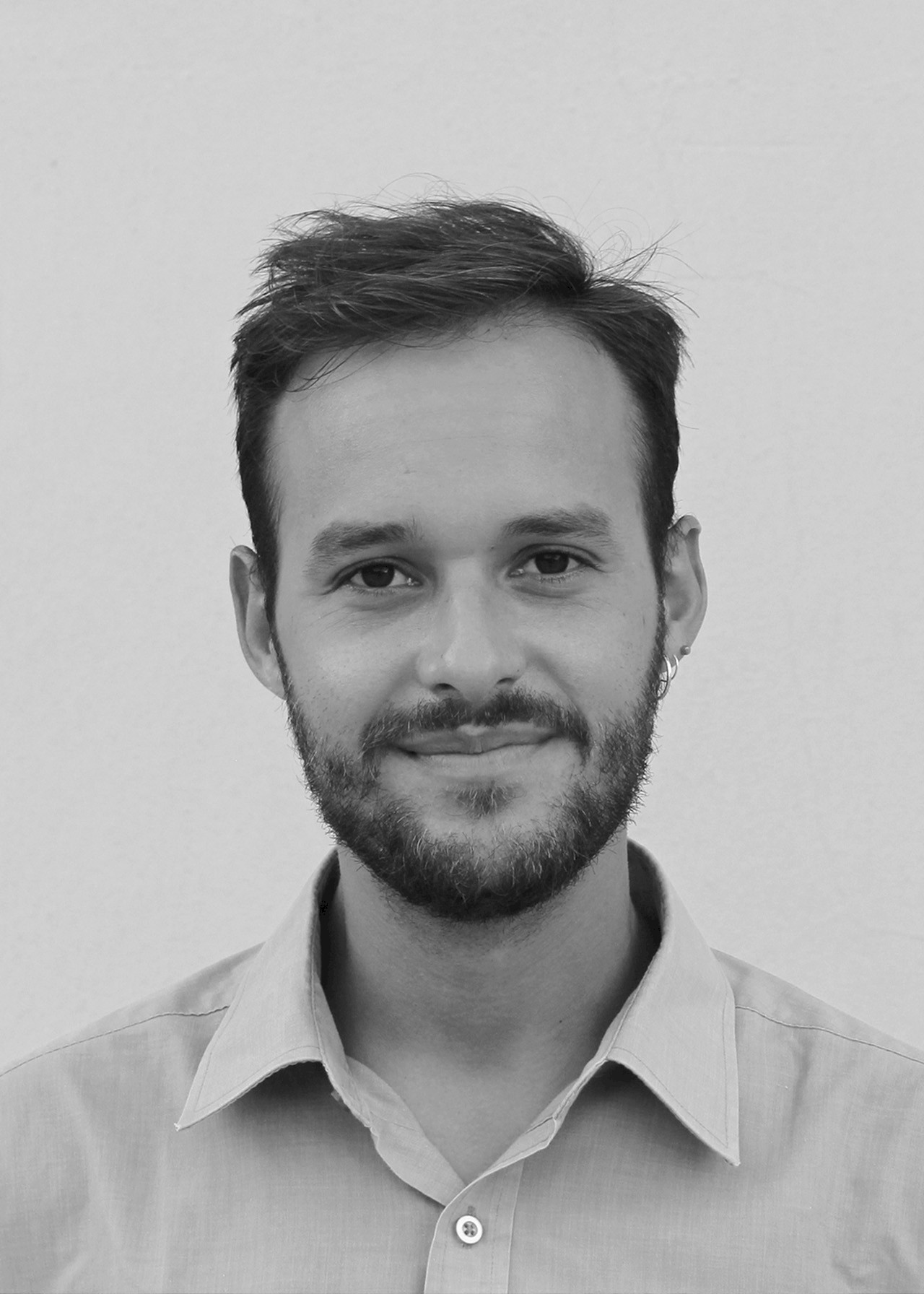
Juan Pablo Pacheco Bejarano
PreDoc
Vibrating Bodies of Water
Juan Pablo Pacheco Bejarano is an artist, writer, and educator born and raised in Bogotá, Colombia. With a background in film, cultural studies, and contemporary art, his research dives into the relations between water, technology, ecology and telepathy, which he weaves in the form of essays, video and sound installations, and participatory workshops. Juan Pablo has done extensive research on submarine infrastructures such as fiber optic cables, which he approached from a poetic, fractal, and non-linear lens. He has also worked with fermentation and urban gardens as an extended practice of techno-ecological transformation.
Juan Pablo worked as one of the program managers at Plataforma Bogotá, the only public media lab in Colombia’s capital, between 2017 and 2019. Amongst several projects, he co-created an exchange program for media artists between Colombia and South Africa, an initiative led by TriasCulture, a Senegalese association. Juan Pablo also worked as a cultural programmer at Espacio Odeón in 2019 and 2022, a contemporary art space where he co-created an urban garden, a community kitchen, and dance lessons along with local cultural organizations. He has been a professor of artistic research at the Javeriana and Andes Universities in Bogotá (CO) and at the Royal Academy of Arts The Hague (NL).
The working title for his thesis is “Vibrating Bodies of Water”, a project that seeks to regenerate coral reefs through a poetic and material experimentation in bioacoustics, developing participatory design methods with coastal communities. Coral reefs, one of the most biodiverse and fragile ecosystems on the planet, are built by symbiotic beings that have a particular, yet under-studied, relation to sound. Anthropogenic activity, such as sound pollution, is having a negative impact in these ecosystems. In collaboration with marine scientists, artists, and coastal communities, Juan Pablo plans to design submersible non-invasive sound prototypes to record and reproduce sound as a method of marine restoration. Juan Pablo’s approach uses theoretic frameworks and participatory methods that aim to decolonize science and conservation practices, and engage with sound as a powerful medium to learn from the polyphony of coraline lifeworlds.
@jppachecob